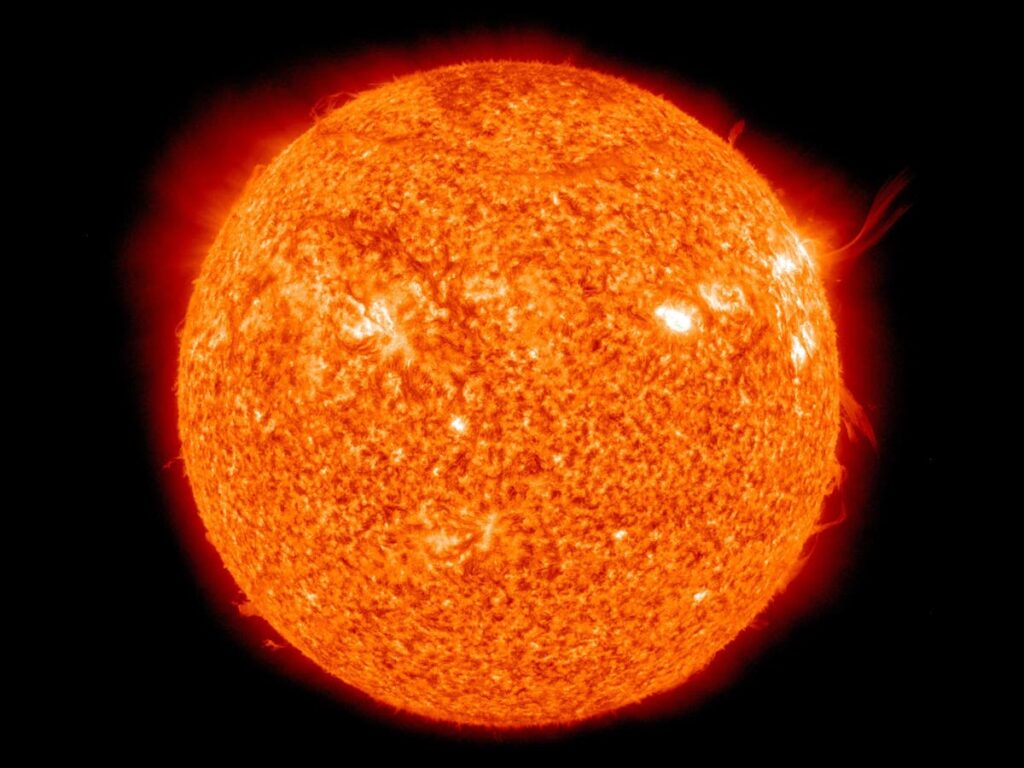
What does China’s artificial Sun hold for us?
The post What does China’s artificial Sun hold for us? appeared first on The Economic Transcript.

China always makes it to the headlines because of its unusual experiments and discoveries. A very recent example of the discovery of a fossil of an unhatched egg of a dinosaur, which dates back to around 66 million years. This still seems normal as it can be considered as an archaeological discovery. But can we imagine creating a celestial body like “Sun” on our planet? This, definitely, is a crazy idea.
A couple of months back, China undertook an experiment of creating an artificial sun, which produces light, heat, and energy just like the Sun and other stars do. And, scientists have been successful in creating a replica of the Sun, which is surprisingly ten times hotter than the sun.
Known as Experimental Advanced Superconducting Tokamak (EAST), it mimics the energy generation process of the sun and produces heat and light the same way. EAST is basically a kind of reactor device which is located at the Institute of Plasma Physics of the Chinese Academy of Sciences (ASIPP) in Hefei, China.
This artificial sun works on the principles of how the sun generates energy. The Sun in our galaxy produces energy through a nuclear fusion reaction. Inside the Sun, the hydrogen atoms collide with each other and fuse at high temperatures- around 15 million degrees centigrade, under enormous gravitational pressure. About 600 million tons of hydrogen are used by the Sun to create helium, each second.
Basically, there are two processes that produce energy- Fission and Fusion. Fusion can produce high levels of energy without generating large quantities of nuclear waste. But currently, nuclear power is obtained in the form of fission- a process in which the nucleus of a heavy atom is divided into two or more nuclei of lighter atoms, leaving a lot of nuclear waste behind. So, the creation of EAST can be seen as a crucial step in creating huge masses of energy through fusion, leading to minimum generation of waste.
China’s artificial sun is called HL-2M and it can reach temperatures over 150 million degrees Celsius, which is ten times hotter than the sun. EAST is one of the major domestic tokamaks that are being operated in China. Not only this, but China is also operating the HL-2A reactor as well as J-TEXT. This artificial Sun was successfully powered up for the first time in December 2020 and it is a key milestone in the growth of China’s nuclear power research projects.
This is an important thing to note, that China is a part of the International Thermonuclear Experimental Reactor (ITER) Project. This artificial Sun will offer key technical support to this project, specifically in research areas such as flux instability and extremely high-temperature plasma magnetic phenomenon. The objective of ITER is to determine the technological and economic viability of nuclear fusion by magnetic confinement. This will be the first fusion site that can produce net energy and maintain the fusion process.
Song Yuntao, deputy director of the Institute of Plasma Physics at the Hefei Institute of Physical Science, said, “Five years from now, we will start to build our fusion reactor, which will need another 10 years of construction. After that is built, we will construct the power generator and start generating power by around 2040.”
The EAST reactor is of great significance as it has already set a new record when it achieved a plasma temperature of 216 million degrees Fahrenheit and surprisingly it managed to run for 20 seconds at 288 million degrees Fahrenheit. In 2018, EAST had reached a record temperature of 100 million degree Celsius. This is a milestone achieved in the field of nuclear research. The next goal for scientists is to maintain the high temperature for longer periods of time so that we can look forward to an alternative source of energy on our planet.
The energy generated from nuclear fusion is the most reliable and clean energy, Lin Boqiang, director of the China Centre for Energy Economics Research at Xiamen University, told the Global Times on Friday, adding that if the technology can be applied commercially, it will have huge economic benefits. This creation of the artificial Sun is also a right step in the direction of China’s green development. This method of energy generation is cleaner and more reliable.
China has spent around 6 billion yuan that is US dollar 893 million on tokamak, which carries out the process of fusion. According to scientists, if the energy created by fusion is fully utilized, then it will just require tiny amounts of fuel to generate large masses of energy. The invention of the artificial Sun is a way towards a new technological revolution, which will have impacts on our lives for centuries.
Written by- Gargi Singh
Edited by- Riya Shah
The post What does China’s artificial Sun hold for us? appeared first on The Economic Transcript.
The company that owns the iconic luxury retailer Saks Fifth Avenue filed for bankruptcy late Tuesday. The move comes after Saks Global struggled with debt it took on to buy rival Neiman Marcus, lagging department store sales and a rising online
Warner Bros. Discovery on Wednesday rejected Paramount Skydance’s amended takeover offer, the latest in a series of rejections in David Ellison’s pursuit of the streaming and cable giant. The media company said it remains committed to the $82.7 billion deal it
Trump Media & Technology will merge with a fusion power company in an all-stock deal that the companies said Thursday is valued at more than $6 billion. Devin Nunes, the Republican congressman who resigned in 2021 to become the CEO of
